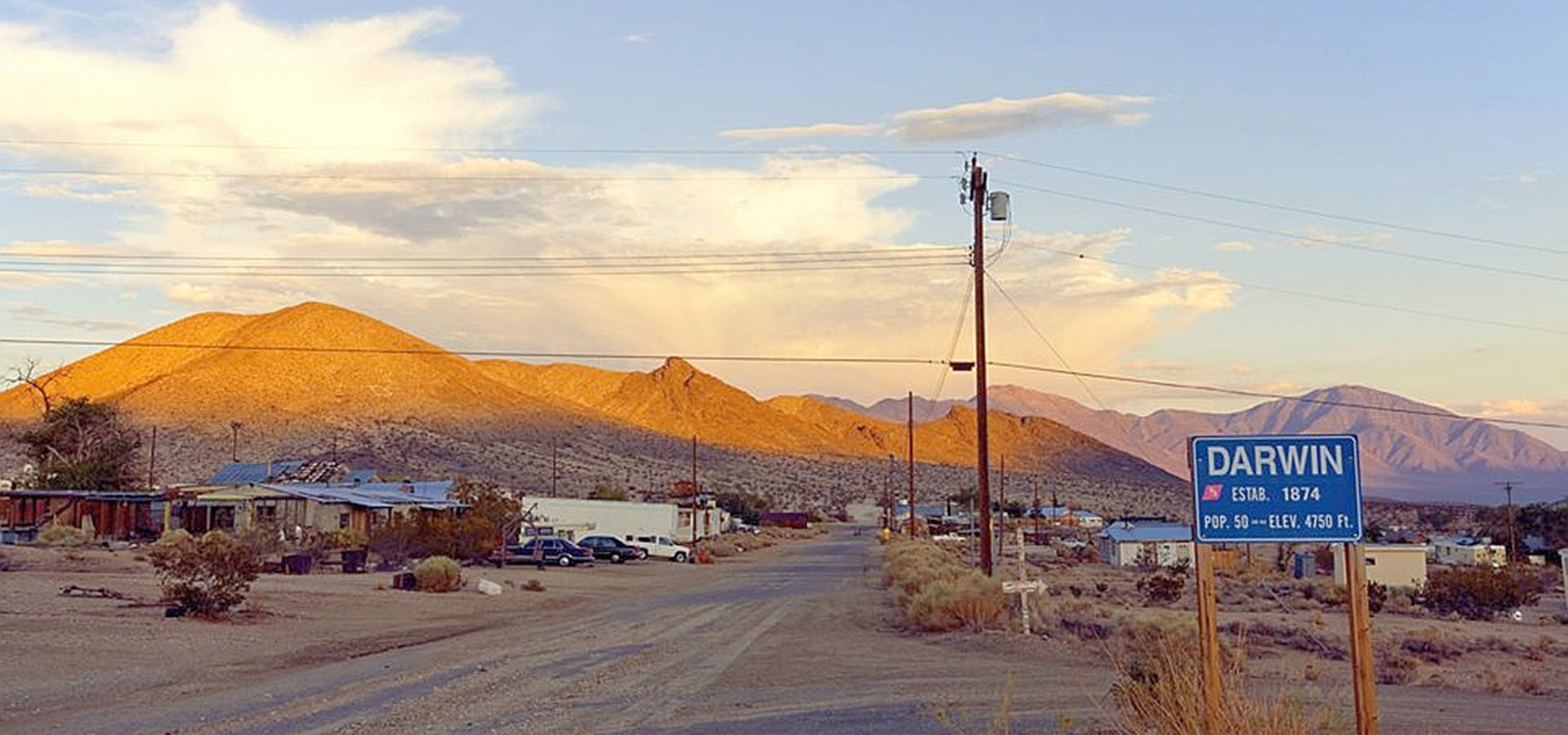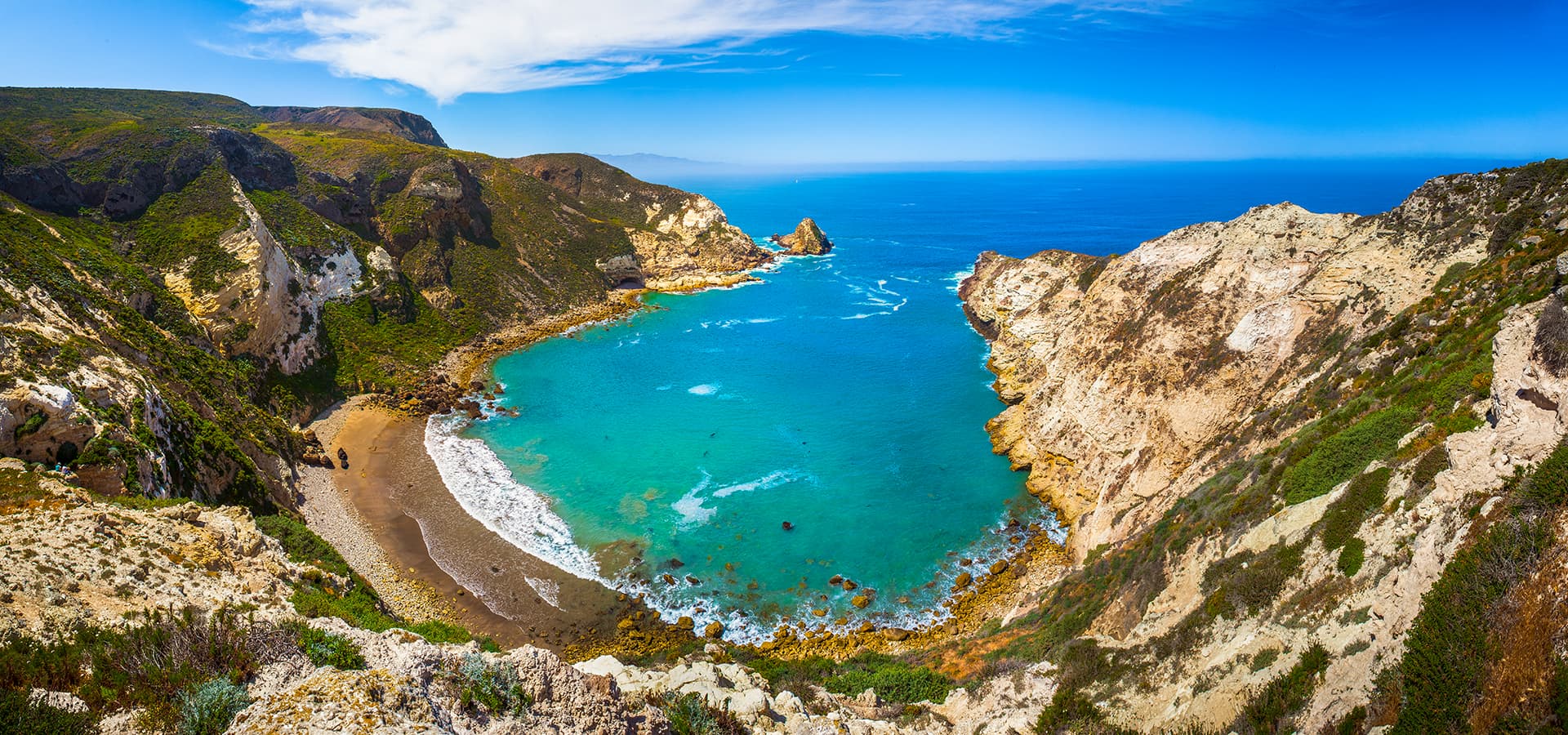Named after Charles Darwin or Dr. Darwin French (no one is 100% sure), the town of Darwin, on the edge of Death Valley, became a settlement back in 1874 once lead and silver were discovered in the area. For many years, the town prospered, especially after a toll road opened the Valley west. But when Death Valley became a National Monument in 1933, the toll road was purchased to allow free access to new visitors, and a new cutoff bypassed Darwin completely in 1937, essentially isolating it altogether.
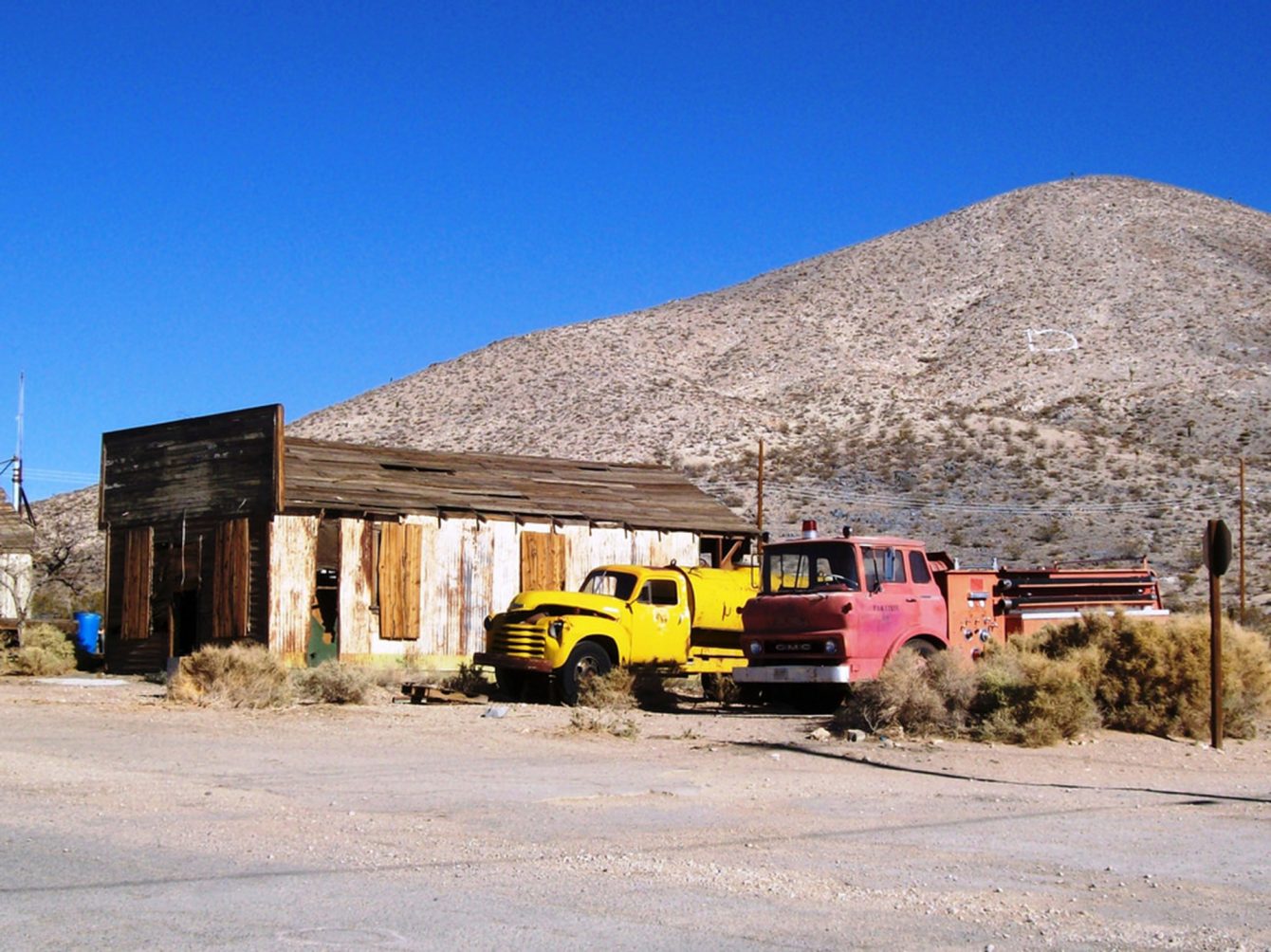
Long in decline, Darwin edged toward becoming a ghost town. Only a few dozen residents were recorded in the 2010 Census. The closest market is 70-miles round trip. Yet, a small group of locals maintain a heartbeat in this small, dusty enclave.
In her book Darwoon Dyreez, artist and writer Kathy Goss describes the scene arriving in Darwin. “There’s a stop sign at an intersection where paved road seems to end. I have a feeling there’s a bunch of eyes peeking at me from behind the curtains of the old falling-down houses.”
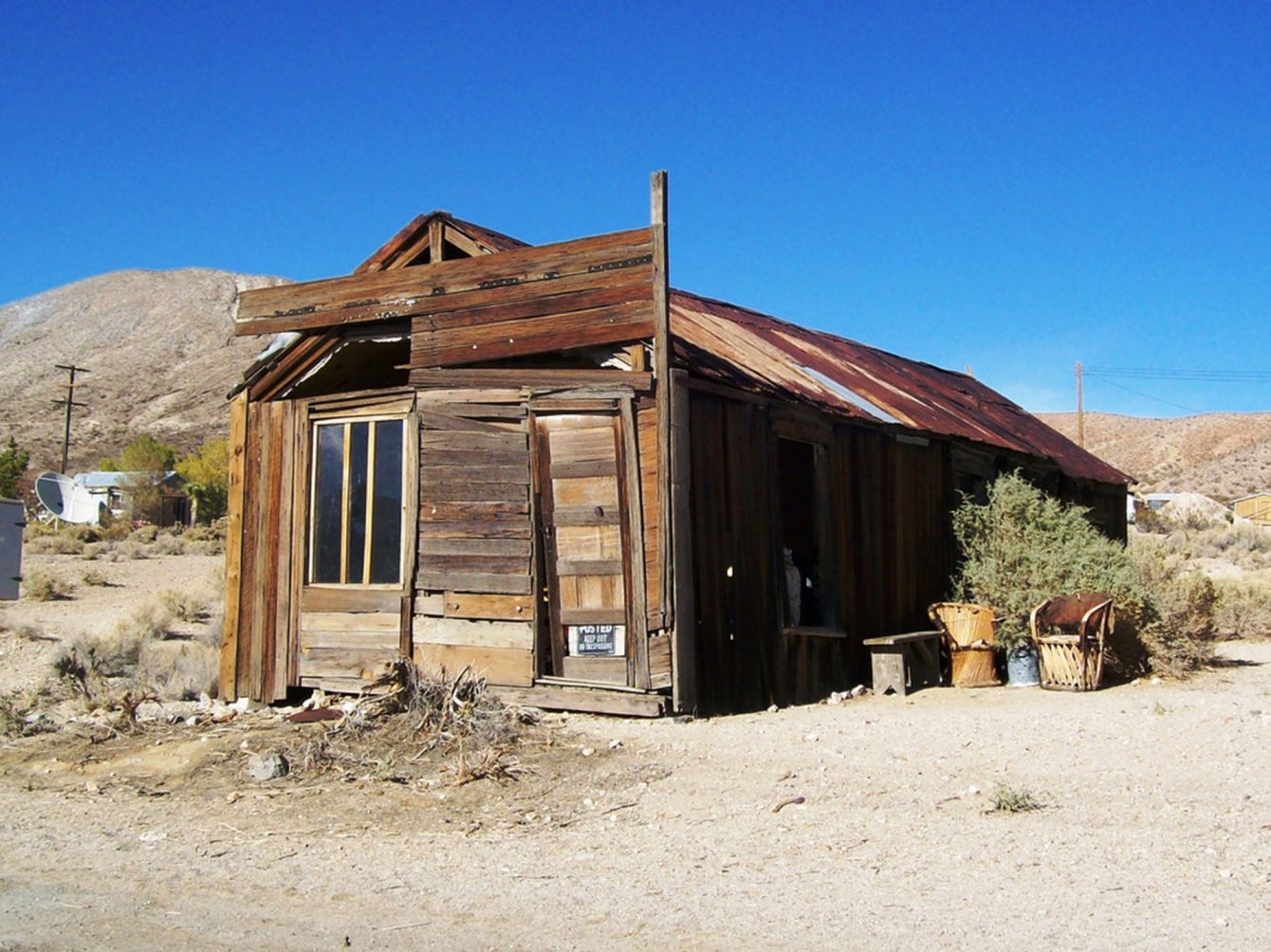
According to the story from KQED, “The 75-year-old Goss now lives in that little house at the intersection she describes in Darwoon Dyreez. The book is part desert noir, part semi-fictional memoir written in Darwoonish, a desert patois she invented.
“I wanted to create a feeling of a desert rat kind of lingo,” said Goss. “It sort of shows the way the narrator in the book who bears a strong resemblance to me, has become countrified.”
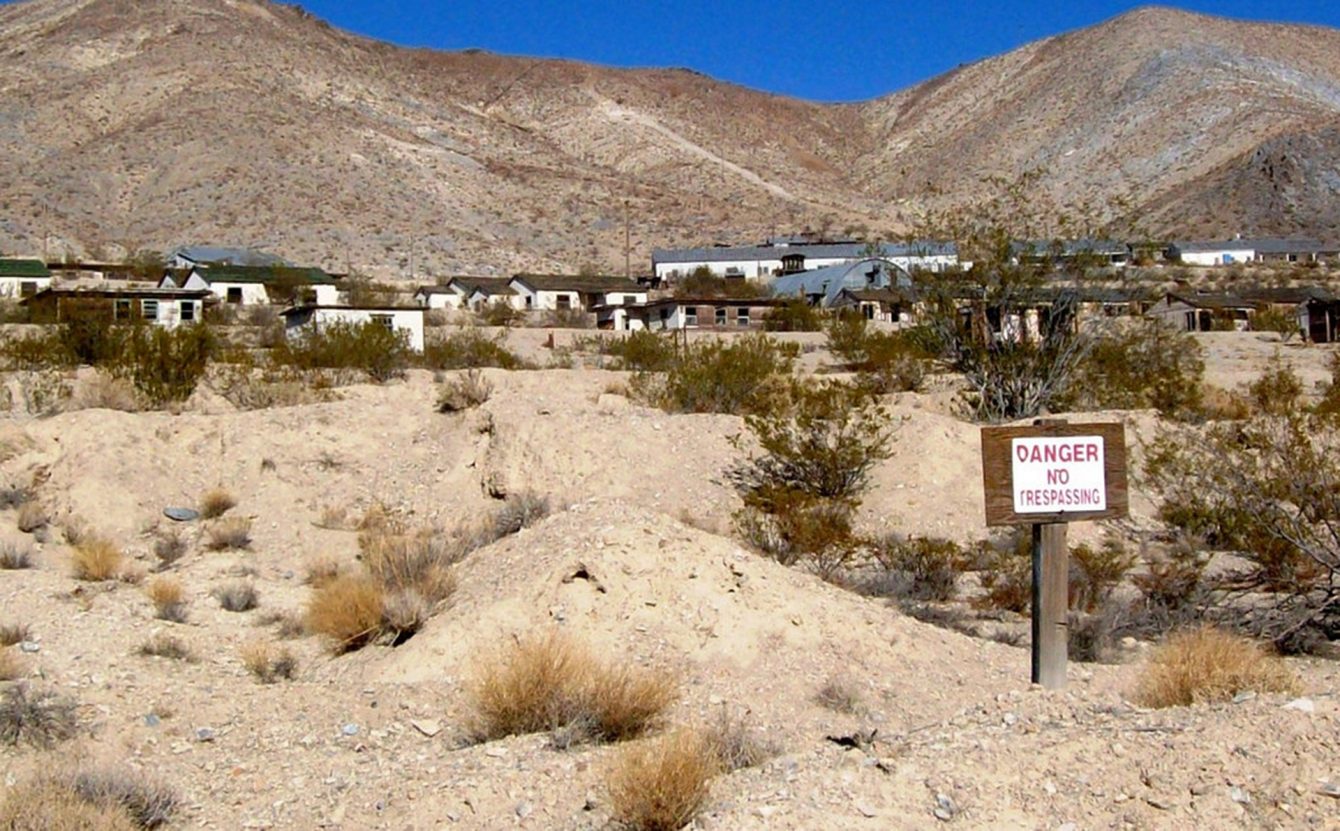
Most of residents keep to themselves, lowering those shades Goss mentions in her book. But not all. Among the rusted trucks and wood worn building facades, art lives and breathes in Darwin. Sculptor Jim Hunolt and his partner Rose live there, and his polished abstract sculptures bring a soft texture to a mostly desolate part of the state. Why did Jim and Rose choose Darwin?
“Freedom. Just to do what you want,” she says. “There’s what, 35 people that live here now? So you kind of find your kindred spirits amidst that.”
You can see Jim’s work and read more about Darwin here.





